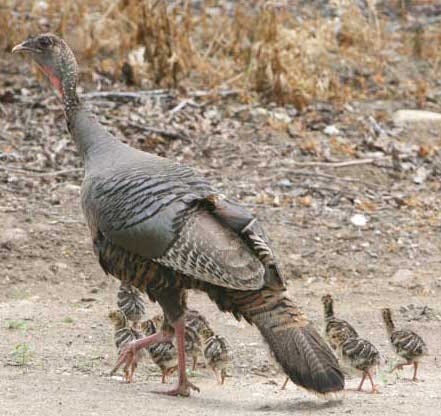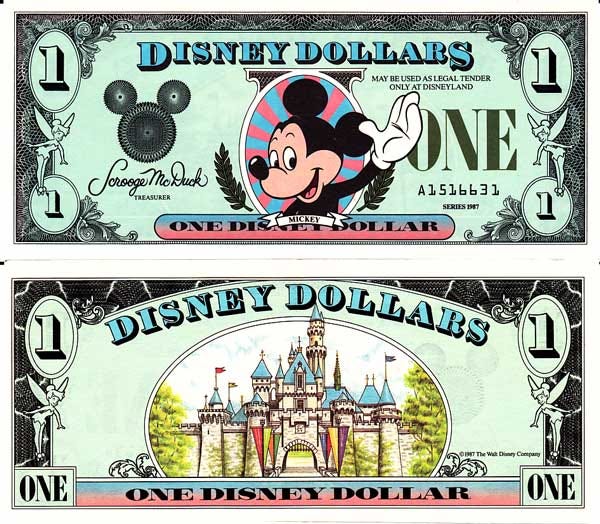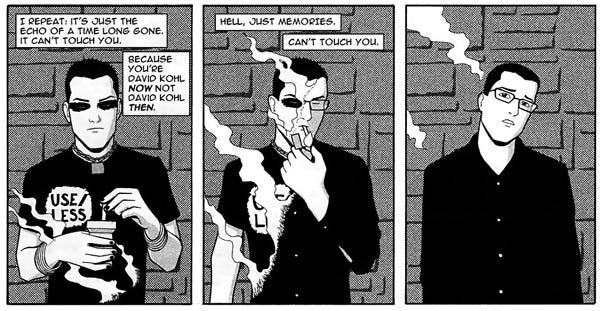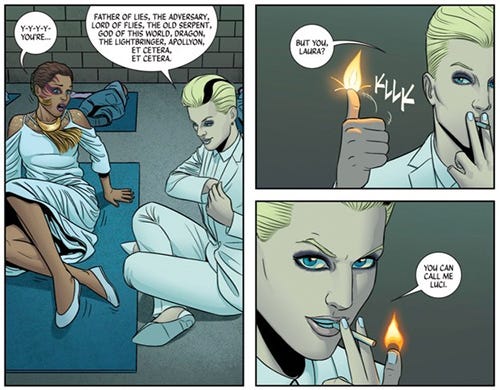So What, Who Cares (vol 2, issue 84) Why you should plan your Thanksgiving menu now
Hello! Welcome to the beginning of a whole new week. Let's do this thing, everyone. #caffeine
*

Egg rationing is only the start: thanks to a spring outbreak of the bird flu stateside, approximately 7.8 million turkeys have been euthanized, and the number of new poults, or little baby turkeys, that hatched in May was 8% below normal. Handy reminder: Thanksgiving is five months away, or just about when these poults are big enough to be going to slaughter.
So what? Normally, one-sixth of all turkey consumption in the U.S. takes place on Thanksgiving day, to the tune of 46 million birds cooked and eaten. Not every bird that's available at stores is born in May -- we do have 394.4 million pounds of frozen turkey as of April 2015, reports the USDA -- but the drop in May poults is likely to mean that big, whole or fresh turkey may be more difficult to come by in November.
Who cares? This is a golden opportunity for food blogs and food magazines. I am not joking. Instead of the usual Thanksgiving-centric offerings of how to roast a whole turkey in some manner (brining! dry rubs! deep frying!), this could be the year to revive historic Thanksgiving menus (think swan, eel and venison) or do riffs on things one can make with part of a turkey.
This is also an opportunity for CSAs to drum up interest and orders for free-range or heirloom turkeys now. There is a ton of marketing potential in the "Our birds don't ever get sick because they live in healthier conditions that you do"-type pitch and the "Lock in the price now before the rest of America panics" sales ploy.
*

Orlando has become a hotspot for moneyed tourists, with visitors' mean household income at $93,000. The U.S. household's median income hovers around $52,000. Remember, the difference between median and mean is that the former describes the "middle" of a set of data, so there is an equal number of data smaller and larger than it is, while a mean is derived from adding up all values, then dividing by the number of the values -- so a mean can be skewed if some data values are particularly or small, in a way that a median cannot.
Why has Orlando become a hotspot for people who have more money than many typical American households? Because Disney's been positioning itself as a "premium brand," and premium brands can command tremendous prices so long as there's demand.
So what? It's interesting to see how Disney's preserving the premium aspect of its branding and aiming squarely at the experience-is-the-luxury market (vol 2, issue 36), especially as it's moving to personalize the experience via wearables and reacting to user-generated data.
Who cares? Kids who are surrounded by a sea of Disneyana but had the bad judgment to be born to parents who aren't in the top 25% of household earners? Folks who are put off by the idea that opting out of a Disney MagicBand means getting a sub-par park experience?
Alternately, the increasing skew toward higher-income consumers means there's room for a theme park operator to open an offering aimed at more modest incomes. County or state fairs can't hope to compete with the whole Imagineered experience with rides -- but why not start positioning these fairs as the family-fun alternative that offers experiences (pig racing, for example) you're not getting on It's A Small World? There's the luxury-of-experience angle, but at a fraction of the cost.
*

Your pop-culture note of the day: This graphic novel is ten years old, but Phonogram: Rue Britannia, by Kieron Gillen and Jamie McKelvie, feels particularly relevant in an age when packaged nostalgia for the 1990s is an actual editorial strategy.
The plot of the book centers on a phonomancer (i.e. someone who uses pop music to perform occult deeds) being charged to stop the revival of 1990s Britpop, and while it's a love letter to a very specific time and place in pop music, it's also a scathing commentary on what happens when people persist in staying anchored to a past they're deliberately rewriting for future generations -- and a cheeky tweaking of the Arthurian mythos.
As the main character asks, "Who would want a simpler history of a dead cultural movement? And why would they want it simpler anyway?" That's a question that goes well beyond musical genres.

Gillen and McKelvie have explored issues of music's ability to transform a generation and what it means to be divine in the 21st century with their ongoing series The Wicked and the Divine. It's another addictive, propulsive read, about a world in which twelve deities from pantheons across times and cultures arise every 90 years before expiring 24 months later. In this iteration, the deities have all possessed young people, turned them into pop stars -- and launched a murder mystery that raises questions about who we choose to venerate and why. Accompanying this heavy lifting: creating panels that manage to be impossibly chic-looking while referencing everything from Rhianna to the avatar of Desire from Neil Gaiman's Sandman series.
Taken together, these two books form a satisfying thematic arc about how we define our individual senses of self in response to larger cultural forces, and what it really means to feel connected to the world through our music. And these books are simply gorgeous. Read them now, and you'll feel very in-the-know when The Wicked and the Divine gets adapted for TV.
Note #1: Both of these series have follow-up trades or ongoing issues; I'm just offering an entry point and/or self-contained experience for both.
Note #2: Old-school horror fans may remember Stephen King plumbing the same territory of rock music, immortality and the role the fan plays in that immortality in his short story, "You Know They Got a Hell of a Band." I am sure I am missing other horror, fantasy or SF short stories about rock and roll as the province of the supernatural -- shoot me a line via email or Twitter and tell me which ones you'd recommend.
Note #3: There are lots of reasons to read Caitlin Moran, but one of my favorites is because she's a former music journalist and she has many smart things to say about music, like:
Pop is the cultural bellwether of social change. Because of its immediacy, reach, and power— no two-year turnover, like movies; no three-year writing process, like the novel; no ten-year campaigning process, like politics— any thought or feeling that begins to foment in the collective unconscious can be number one in the charts two months later. And as soon as a pop idea gets out there, it immediately triggers action and reaction in other artists, whose responses are equally rapid— leading to an almost quantum overnight shift in the landscape.
Anyway, if you've not yet read Moran, fix that. How to be a Woman is a good start, and I enjoy Moranthology because it's a good book to chuck in your bag -- each essay is so self-contained, you can dip in and out whenever you're standing in line somewhere, or sitting by the side of the pool during your child's swim lesson, or generally having to keep half an ear open in your surroundings..
*
Are there typos? I apologize in advance. The only editing class I did not get an A in was copyediting.
Did you miss an issue of So What, Who Cares? The archive is here. If you really like So What, Who Cares?, tell a friend to subscribe. And do not hesitate to hit me up via email or on Twitter. Thanks for reading!

